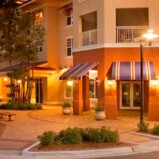
Compact Versus Golf Course Communities
Posted on Aug 20, 2015
For years, Southwest Florida was known for its elegant and expansive golf course communities. But a recent article suggests that is no longer the case.
For the past 50 years, master planned communities were the dominant choice. The shift to more compact communities is due to a number of things.
 People are no longer willing to commute an hour to work and back, not to mention, racking up more miles to get to school, entertainment, local hangouts or the coveted local coffee shop. While millennial buyers typically prefer to walk everywhere, this shift isn’t just limited to them. Luxury buyers who can afford to spend more on amenities will certainly enjoy having a golf course within close proximity to their home—but it is no loner considered a necessity. The grand clubhouse is no longer a big seller either. They prefer a smaller, more intimate gathering place.
People are no longer willing to commute an hour to work and back, not to mention, racking up more miles to get to school, entertainment, local hangouts or the coveted local coffee shop. While millennial buyers typically prefer to walk everywhere, this shift isn’t just limited to them. Luxury buyers who can afford to spend more on amenities will certainly enjoy having a golf course within close proximity to their home—but it is no loner considered a necessity. The grand clubhouse is no longer a big seller either. They prefer a smaller, more intimate gathering place.
They’re also looking for regional amenities specific to a particular state or area of the country. Developers are beginning to focus on things like farmer’s markets, food festivals and outdoor music programs to bring people together naturally. A social event at a clubhouse can sometimes feel forced.
Ave Maria embodies the classical community feel. That’s why it continues to be popular in high-priced markets like Naples. Other models of urban, vertical master-planned communities are also gaining ground. For example, Miami World Center, a soon-to-open master-planned community. Its 27 acres contains two 60-story towers, a giant Macys and Bloomingdales, hotel and parking garage.
These types of things are important to buyers because they don’t want to feel isolated in a green, suburban golf course community. Now people simply want to connect.
For information on real estate in Southwest Florida, contact Kim at (239)-214-1039.
Browse Ave Maria Listings
Sorry we are experiencing system issues. Please try again.
